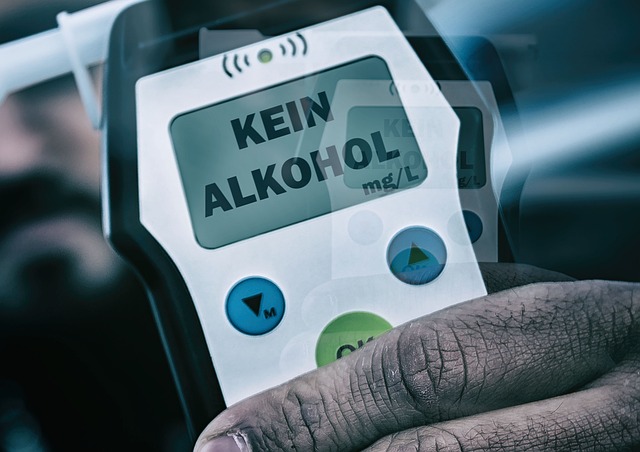Ride-sharing companies enhance passenger safety through advanced Vehicle Safety Features (VSFs) like airbags, ABS, ESC, and lane departure warnings, combined with regular maintenance checks mandated by the companies. DUI laws act as a deterrent for impaired driving, fostering accountability among drivers. By leveraging VSFs, promoting robust driver screening, providing training on DUI laws, and implementing real-time tracking, these companies significantly reduce impaired driving incidents, ultimately contributing to safer roads.
In today’s digital age, ride-sharing has revolutionized transportation. However, ensuring passenger safety remains a paramount concern. This article delves into critical aspects of ride-sharing driver accountability, focusing on vehicle safety features designed to protect both passengers and drivers. We explore stringent DUI laws and their impact on curbing impaired driving. Additionally, we analyze the role of ride-sharing platforms in implementing safety measures and preventive strategies to reduce DUI incidents within shared rides.
- Vehicle Safety Features: Protecting Passengers and Drivers
- DUI Laws: Addressing Impaired Driving
- Driver Accountability: Ensuring Responsibility
- Ride-Sharing Platforms: Role in Safety Implementation
- Preventive Measures: Reducing DUI Incidents in Shared Rides
Vehicle Safety Features: Protecting Passengers and Drivers

Ride-sharing drivers play a crucial role in ensuring passenger safety, and one of the key aspects is their vehicle’s safety features. Modern vehicles are equipped with advanced systems designed to protect both occupants and others on the road. These include airbag systems, anti-lock braking mechanisms (ABS), electronic stability control (ESC), and lane departure warnings—all working together to minimize the risk of accidents and reduce their severity.
Additionally, many ride-sharing companies implement strict guidelines regarding vehicle maintenance and safety inspections. Drivers are mandated to regularly check tire pressure, brake function, and other critical components, ensuring that their vehicles meet the necessary standards. Moreover, with the implementation of DUI (Driving Under the Influence) laws, these features become even more vital. Vehicle safety technologies act as a deterrent and aid in preventing impaired driving, promoting accountability among ride-sharing drivers and contributing to safer roads for everyone.
DUI Laws: Addressing Impaired Driving

Ride-sharing drivers, like all motorists, are subject to DUI laws, which strictly prohibit driving while under the influence of alcohol or drugs. Ensuring vehicle safety features is a crucial step in addressing impaired driving. Modern vehicles are equipped with advanced technologies designed to prevent and mitigate accidents, even when the driver is impaired. These include automated emergency braking systems, lane-keeping assists, and adaptive cruise control, among others.
By leveraging these Vehicle Safety Features, ride-sharing companies can enhance accountability and promote safer roads. Drivers who engage in drunk or drugged driving face severe penalties, including license suspension, fines, and potential criminal charges. Moreover, implementing robust screening processes and providing regular training on DUI laws and safe driving practices can further deter impaired operation of a vehicle.
Driver Accountability: Ensuring Responsibility

Driver accountability is a critical aspect of ride-sharing services, ensuring both vehicle safety features and adherence to strict DUI laws. Ride-sharing companies must implement robust mechanisms to hold drivers responsible for their actions on and off the job. This includes rigorous background checks, regular training sessions focusing on safety protocols, and advanced in-vehicle technology that tracks driver behavior. By incorporating these measures, companies can foster a culture of accountability, minimizing risks associated with impaired driving and promoting safer road conditions.
Moreover, leveraging technology to monitor driver performance during trips is essential. Vehicle Safety Features, such as collision avoidance systems and real-time tracking, enable swift intervention in case of emergencies. Additionally, strict DUI laws are enforced through random alcohol and drug testing, deterring drivers from engaging in such behaviors. This multifaceted approach to driver accountability not only protects passengers but also enhances the overall reputation of ride-sharing services.
Ride-Sharing Platforms: Role in Safety Implementation

Ride-sharing platforms play a pivotal role in enhancing vehicle safety and maintaining accountability among drivers. These platforms implement various safety measures, such as background checks, driver training programs, and real-time tracking systems, to ensure a secure experience for passengers. By integrating advanced Vehicle Safety Features (VSFs) like collision avoidance systems, lane departure warnings, and automatic emergency braking, ride-sharing companies are at the forefront of promoting road safety.
Moreover, these platforms must adhere to local DUI laws to maintain a safe environment. They implement robust verification processes, including driver’s license checks and vehicle inspections, to deter any potential impaired driving. Regular updates on safety protocols and transparent communication with both drivers and riders are essential to fostering trust and accountability in the ride-sharing ecosystem.
Preventive Measures: Reducing DUI Incidents in Shared Rides

To reduce DUI incidents in shared rides, ride-sharing companies must implement robust preventive measures. One key strategy is integrating advanced vehicle safety features into their fleet. Technologies such as automatic emergency braking, lane departure warning systems, and alcohol detection sensors can significantly deter drivers from operating under the influence. These features not only alert drivers to potential hazards but also discourage them from consuming alcohol before taking the wheel.
Additionally, strict adherence to DUI laws is imperative. Ride-sharing companies should enforce robust background checks for all drivers, regularly audit their operations to ensure compliance, and establish clear policies that prohibit any form of alcohol consumption during driving duties. Encouraging riders to report suspicious behavior can also help maintain a safe environment, making shared rides a reliable and responsible transportation option.
In conclusion, enhancing ride-sharing safety involves a multi-faceted approach. By prioritizing vehicle safety features and strengthening DUI laws, we can create a more secure environment for both passengers and drivers. Ride-sharing platforms play a pivotal role in implementing these measures, while proactive preventive steps can significantly reduce DUI incidents within shared rides. Ensuring driver accountability is paramount to achieving a safer, more responsible ride-sharing ecosystem.






